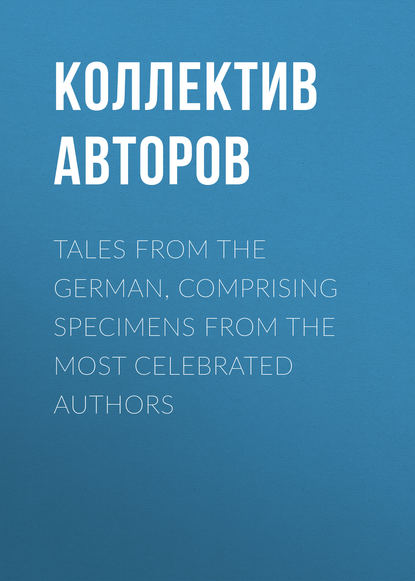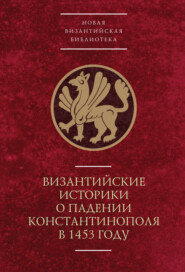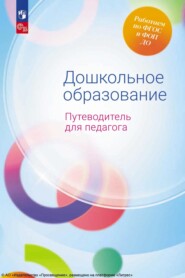По всем вопросам обращайтесь на: info@litportal.ru
(©) 2003-2024.
✖
Tales from the German, Comprising specimens from the most celebrated authors
Настройки чтения
Размер шрифта
Высота строк
Поля
Now I plainly saw, that Francis did not choose to see me, and had denied himself. I endeavoured to call to my memory, whether I had at any time given him offence; but, after the strictest scrutiny, could not find the least spot on my conscience respecting him. I therefore, wrote him rather a severe letter, requiring him to see me, and that not merely from friendship to me, but from the respect he owed himself.
When I called again, I was admitted, and having waited for some time in the room, I saw a stranger approaching from the adjoining chamber, not like a human being, but a tottering, trembling skeleton, with a pale, sunken countenance, which, but for the fiery eye, one might have taken for the face of a corpse. "Great God!" I exclaimed with horror, as I recognised in this spectre my friend Francis, that once handsome, noble fellow.
I sank terrified into a chair, and he sat down by me, took my hand between his withered fingers, and said, "Yes! my friend, thus we again meet, and you now understand why I wished to spare you this sad sight. Yes! friend, all those curses have been realised, and calamity has overtaken me, however actively I endeavoured to escape it; my life is exhausted by disease, as well as that of my youthful wife, once a paragon of beauty; I am a beggar, and all hope is gone for ever."
Still I could not recover from my astonishment; the first chilling terror was succeeded by the deepest compassion and ineffable sympathy in my soul, and my unfortunate friend saw my tears flow.
"But how has all this been possible?" I exclaimed, "Speak; confide all to your friend."
"Spare me," he said, in a faint voice, "let us throw a veil over these calamities, for what good can it do you to know the why and wherefore? You would not comprehend nor believe it, and still less could your advice or consolation avail any thing."
I could make no reply, his distress seemed so great, that he was, perhaps, right in what he said. Words, details, and complaints, are often only stings to the deadly wound. I requested him to introduce me to his wife. He led her in. She seemed to suffer equally with himself, but still showed evident traces of beauty. She was of a tall, noble figure, her blue eye was of a piercing clearness, and her sweet-toned voice was full of soul. After some conversation, the physician entered, and I took my leave, making it a condition, that in future he would not refuse to see me.
I required rest to collect myself, and, therefore, sought the most solitary spot to arrange my thoughts and feelings. How strange, in these moments, appeared human life, friendship, death, and health! In these, my dreams, I was interrupted by a friendly voice addressing me. It was the physician, an elderly, good-natured man, who sat down beside me. "I have learned," he began, "that you are a youthful friend of our poor patient, and have sought you to consult with you, respecting his lamentable and enigmatical state. I have never met with a similar illness, I do not understand it, and, therefore, am but groping in the dark with my remedies; nor do I know whether the waters here are salutary to him or his sick wife, who seems wasting away from the same complaint. I have no name for this wasting fever, which defies all known remedies. Sometimes I could almost imagine them insane, did not reason absolutely manifest itself. But even should their minds be unimpaired, they are, doubtless, hypochondriacs. And the worst is, the count will not communicate freely, but, on the contrary, anxiously avoids all questions respecting his condition, and all inquiries as to its cause and commencement. I do not wish to irritate him, though my inquiries and questions have more than once had that effect, and yet it seems necessary to learn from himself the history of his complaint. I therefore request you, dear sir, to exert your influence with him, as his friend, that he may confess to us the origin of his illness. If I once knew this, it might, perhaps, be possible to afford relief to both of them. If the disease is mental, of which I feel almost convinced, the physician must be in their confidence to afford relief; but if this is withheld, he may cause even death, not only by his prescriptions, but by an unguarded word. I therefore conjure you to do all in your power to make him confide every thing to you." I promised all he desired, for I had long entertained the same opinion. But when, on the following day, I remonstrated with my friend, I found the task more difficult than I expected, as he was inaccessible on that point. He did not yield until I united tears to my entreaties, and his suffering wife joined with me, as the hope arose within her that the physician might be able to afford relief to her husband. He stipulated that whatever he should communicate should be communicated in private to me alone, undisturbed, and without even the presence of his wife, who would be much pained at the relation.
Thus was it arranged. My little room looking on the garden was so quiet and retired, that no intrusion was to be feared, and after a frugal supper I dismissed the servant, enjoining him not to admit any one. The invalid countess was left with her attendants, and a lady of my acquaintance kindly read some amusing work to her during her husband's absence.
We sat then in my well lighted little room, while the summer breezes murmured sweetly through the trees without. My sick friend was on the sofa, and the physician and myself were opposite, when Francis began slowly and with many pauses, (as speaking seemed painful to him) the following narrative:
"Yes, my friend, you see me again, ill and dying, and my wife, who but two years since was a paragon of health and beauty, is no less afflicted. The Klausenburg which more than once sheltered us so hospitably is become a desolate ruin; storms and fire have destroyed it, and whatever useful material remained was wrested from it by my cruel creditors in derision, and sold for a mere trifle. You know, my friend, the belief or rather superstition that followed me, but with this I will not weary our good physician, as it had no sensible influence on my immediate fate. I have moreover, so much of the marvellous to tell in the recent events that have befallen me, that it will be more than sufficient fully to convince the learned doctor that I am insane.
"Young as I was I had already resigned life, since I considered it completely at a close. But as it frequently happens that the power of a beautiful spring will revive a tree apparently lifeless, so that its branches again become verdant, and at last one blossom springs from them, so it happened with me. Travelling about in a misanthropical mood I stopped in a small town situate in a delightful country, and through my introductions made acquaintance with some interesting people. One of these, a distant relative, who received me most kindly, introduced me to his family, where, for the first time I saw my beloved Elizabeth, and at the second visit I had lost my heart and peace of mind. But wherefore dwell on charms that are fled? Suffice it to say that I was enraptured, and flattered myself that my feelings were understood, and might perhaps in a short time be returned. Elizabeth was residing with an aged aunt; they were neither of them wealthy though they belonged to an ancient family. I was superior to the talk and astonishment of the townspeople, and I stayed a long while in this insignificant place, where there was neither a theatre to amuse, nor large assemblies, balls, and festivals to engage me. I was so happy that I only lived for, and enjoyed, the present moment. The family was very musical, and Elizabeth a truly accomplished performer on the piano forte. Her voice was highly cultivated, full-toned, and beautiful, and she agreeably surprised me by joining in my perhaps one-sided taste for ancient composition. Harmony, skill, and kind looks from her beautiful eyes, – all this so charmed me that weeks vanished like days, and days like hours in the poetical intoxication.
"I spoke of the family. The aunt too was musical, and accompanied us when we sang. I also found myself benefited by becoming again conscious of the talents which I had so long neglected to exercise. Yes, indeed, talents, amiability, social gifts, and pleasing manners, &c." – continued Francis after a pause, during which he seemed lost in thought – "the vanity of possessing these graces have rendered me and others unhappy. Speaking of the family, I must now mention Ernestine, an elder sister of my wife's. Their parents had died early in life. They had lived at a distance from that small town, in what is called good style. This they did without considering their fortune, and the consequence was that they became impoverished and involved in debt. Where this confusion breaks in, where the necessity of the moment ever absorbs the security of the days and weeks, few men possess sufficient energy and resolution firmly to hold the rudder amid the tumult of a returning storm. And thus the wildest and most confused management had broken into this ruined household. The parents not only diverted themselves in banqueting, dress, and theatres, but, as it were, even with new and singular misfortunes. The latter were more particularly caused by their eldest daughter, Ernestine. This poor being had, when only three years old, during the confusion and bustle of a banquet, unnoticed by any one, taken up a bottle of strong liquid, and drinking it, became intoxicated by it, and thus had unconsciously fallen down a high staircase.
"The accident had scarcely been observed, and was lightly thought of when discovered. The physician, a jovial friend of the family, instead of applying the proper remedies, joked on the occurrence, and hence it was that those consequences soon appeared in the child, which she could, in after years, justly attribute to want of affection in her parents. The chest-bone and spine were dislocated, so that as she grew up, she became more and more deformed. Being rather tall, the double hump was more striking, her arms and hands were excessively long and thin, and her lean body quite out of proportion to her long legs. Her face had a singular expression, the little lively and cunning eyes could hardly peep forth from beneath the bony vault of her forehead and the broad, flattened nose, the chin was peaked, and the cheeks were sunken. Thus this unfortunate being was a remarkable foil to her sister Elizabeth. Their aunt, when she heard the total ruin of the family, had interfered and assisted them as far as her limited means permitted. Thus the younger daughter was saved and continued healthy, since the father's sister had taken the children upon the death of their parents, for the purpose of educating them. The physical care of Ernestine came too late, but her mind was cultivated, and her talents were awakened. She showed herself intelligent, learned with ease, and retained what she had once acquired, evidently surpassing her sister in wit and presence of mind. Being fond of reading philosophical works, she exercised her judgment and showed so much acuteness, that she often startled even men by her bold and abrupt opinions; not being united to her own sex by beauty and grace, she not unfrequently exercised a more than masculine power. But what almost seemed to border on the marvellous was her great talent for music. Never had I heard the piano forte played in such a perfect manner; every difficulty vanished before her, and she only laughed when difficult passages were mentioned to her. No doubt the extraordinary span of her hand and fingers assisted her in excelling all that can be done by an ordinary hand. Being also well versed in the art of composition, she composed with ease long pieces of music which we often executed to her delight.
"Could not such a being be happy independent of others? Certainly, if she had resigned herself to her lot, if she could have forgotten she was a woman. Unfortunately for her, all men forgot it who approached her, but she could never raise herself beyond the limit so as to belong to the other sex, or to none.
"This singular being attracted me in a peculiar manner, both by her excellencies and her repulsiveness. When they performed and I sang her compositions, there beamed in moments of excitement from her small eyes, a wonderful, poetic spirit, liked a veiled angel humbled in the dust, with benign yet terrifying splendour. This frequently made me forget that she was the sister of my Elizabeth.
"Elizabeth had before refused some suitors who had earnestly courted her. Entering once the anti-chamber unannounced, I heard both sisters engaged in a lively conversation, in which my name was mentioned. 'You will not accept him, I hope,' cried Ernestine; 'he suits neither you nor us; they say he is not very rich, but he is so proud, so self-sufficient, so convinced of, and so penetrated with, his own excellence, that he excites my indignation whenever he comes near us. You call him amiable, noble; but I tell you he is dogmatical and obstinate; and, believe me, his mental gifts are not so great as you seem to think.'
"With a gentle voice Elizabeth undertook my defence, but her sister discussed all the bad traits in my character so much the more, and passed all my faults in review. Finding that I was the subject of so much discussion, I would not surprise them by entering immediately, and thus I discovered, against my expectation, the dislike the eldest sister entertained for me. I therefore resolved to reconcile this unfortunate being, for whom life had so few charms and joys, by kindness and benevolence. When they had ceased I entered, and the aunt also joining us we immediately commenced our musical exercises, by which means I could best conceal my embarrassment.
"After a few visits I actually succeeded in disposing Ernestine more kindly towards me. When it happened that we were alone, we were deeply engaged in serious conversation, and I could not help admiring both her mind and acquirements. I could not but agree with her, when she often spoke with contempt of those men who only esteem and love in woman the transient and mutable charms that pass away with their youth. She was also fond of railing at those girls who so frequently pass themselves off as phenomena, and only, as it were, wish to please as dolls of fashion and well-dressed blocks. She revealed without affectation the wealth of her mind, her deep feeling, and her lofty thoughts, so that, in admiration of her mighty soul, I hardly remembered her deformed person. She pressed my hand kindly, and seemed perfectly happy when we had thus chatted an hour away. I was not less rejoiced when I perceived how her friendship for me apparently increased every day.
"It struck me as a weakness in my beloved, that she was displeased at our intimacy. I did not understand this petty jealousy, and censured it when alone with her, as showing too much female weakness. On the other hand, I was pleased when Ernestine gave me evident proofs of her friendship, when my appearance delighted her, when she was ready to show me a book or piece of music, or told me how she had prepared herself for a conversation with me on some important subject. This genuine friendship seemed to me so desirable, that I anticipated great delight at the thought that she would, in our married state, complete the measure of our love by mutual confidence. Their aunt approved of my engagement with Elizabeth, and our vows were exchanged. On this occasion Ernestine was not present, being confined by illness to her chamber. I did not see her on the day following, and when I wished to call on her, my betrothed said, 'Do not disturb her, dear friend, she is not quite herself, and it is better to let her passion subside.' 'What has happened?' I asked, astonished. 'It is strange,' replied Elizabeth, 'that you have not, long ere this, remarked how ardently she loves you?' I was struck dumb with terror and astonishment at this information, which startled me the more, since, strange to say, I had considered this intellectual being totally incapable of love; as though passion did not always run counter to possibility, truth, nature, and reason, if these opposed themselves, as, indeed, I had myself experienced in my own life in a similar manner. 'Yes,' continued Elizabeth, 'almost at the very time you entered our house, I remarked her partiality to you, but her predilection manifested itself more decidedly, when you began to show a preference for me, when you became more friendly, and thus gained my confidence. For a long time, she concealed her affection under a pretended dislike, which, however, did not deceive me. Oh! beloved, the mind and feelings, the enthusiasm and passions of this singular being possess such extraordinary power and intensity, that I have been compelled ever since I comprehended her character, to admire her as much as to fear her, and to stand in awe at her gigantic intellect. When, some years ago, I took lessons in music, and made rapid progress, according to the testimony of my instructor, she only ridiculed my childlike satisfaction as she called it. She had never before thought of learning music, and now devoted herself with all her energy to this accomplishment. She practised day and night, and her master no longer satisfying her, she availed herself of the presence of a celebrated composer, and became his pupil. I could not comprehend the mental as well as physical energy, with which she devoted herself unceasingly, almost without sleep and refreshments, and with unwearied zeal to the practice of this art. It was then she learned composition and gained her master's praise and admiration. It was not long, however, before she found fault with him, fancying his execution not sufficiently fiery and enthusiastic, his compositions not sufficiently original and impassioned. He submitted, and agreed with her. All men, she used to say, lie constantly in a half-sleeping state, being almost always, as it were, in a stupor, similar to the plant which grows, blooms, and is beautiful, diffusing odour, and possessing powers, without consciousness. What would men accomplish were they truly awake in their wakeful state? And so she devoted herself to philosophy, reading works on medicine, anatomy, and other subjects, which are usually too abstruse and distasteful to her sex. We, as well as her acquaintance, could not help being astonished at her. And thus, dear Francis, she will certainly become insane in this passion of love, and destroy her own peace of mind.
"Elizabeth now also described to me all the extravagances she committed when she heard of our engagement; at first, she intended to destroy both herself and sister; then again she said she knew how to conquer me, so that I should love her and abandon Elizabeth, whom she excelled both in goodness and intellect.
"I was naturally grieved at this news, feeling full well how imprudently I had acted in making such friendly advances to Ernestine, in my endeavours to reconcile her. I was somewhat relieved, when, a few days afterwards, Elizabeth told me that her sister had apologised with tears for what she had spoken in anger, that she had conjured her not to communicate to me any thing of these aberrations, and only implored her to be allowed to accompany us to our future residence, as she could not possibly live without the company of her sister and myself, without our conversation and our music.
"Now plans and preparations were made, and the aunt accompanied us to the Klausenburg, to celebrate, with a few friends, our nuptials in quiet, as Elizabeth had always been excessively averse from pomp and display. I had had a few apartments and the ball-room prepared, as far as it was possible, the greater part of the castle being in ruins. But Elizabeth had a poetical predilection for old castles, solitary mountainous countries, and the historical legends connected with them. After the wedding, we intended to take up our residence in a new house not far distant, and only occasionally to spend a few days or hours in the Klausenburg.
"We arrived; the gate was opened to us, and the first object that met our view in the court-yard, from amidst the ivy that twined the high walls, was the old mad Sibyl, whom you, my friend, knew some years ago. My wife was terrified, and I shuddered. 'Welcome! Welcome!' cried the old hag, jumping about with wild gestures; 'there comes the destroyer, the woman murderer, and brings his two brides with him, whom he will murder also.' 'How do you come here?' I exclaimed. The porter replied, 'She must have climbed down the other side of the cliffs, which form the extreme wall of the small garden, and must have concealed herself among the shrubs and ruins.' 'You are right, you are right,' screamed the old hag, 'it is pleasant to live there.' Terrified as we were, Ernestine seemed merry, for she did not cease laughing.
"During the days on which we celebrated the festival, Ernestine did not appear; she had vanished; and being anxious about her, we despatched people in search of her, when, on the third day, she returned on foot, merry and in high spirits. She told us she had not been able to withstand the inclination to roam about in the mountains, as she always had had a desire to do so. 'But thus alone, without informing us?' said Elizabeth. 'Alone!' she replied, 'No! I have kept constant company with that old prophetess whom you so unkindly sent away. There I have learnt many things quite new, that I never even read of, and we have become very good friends.'
"We looked at her with astonishment. I formed an idea without expressing it, that Ernestine was mad. So awful and ominous was her return to our residence, such sad forebodings crowded in our minds, that, in spite of my happiness, I felt no confidence on life, and Elizabeth could not regain her cheerfulness.
"In other respects we were reconciled, and enjoyed the present moment, and the beauty of the surrounding woods and mountains. Our few guests, as well as the aunt, had left us, and we might have lived contented and in happy union in this delightful solitude, had I not observed that my wife avoided her sister as much as circumstances permitted. When I asked her the reason of this, she answered after some hesitation: 'Dearest, I am terrified at Ernestine; she has become quite malicious, though formerly she had not the least disposition that way. Whenever she can vex me, spoil any thing, or even expose me to danger, so that I may be startled, stumble, or even fall; or if any stones fall in my way she shows the most malicious joy, as she did when she lately set the curtains of my bed on fire by bringing the candle too near them. She has told me laughing, that the country people talk of travellers and rangers having seen two spectres by moonlight, or in the morning-dawn in the lonely parts of the forests, whom they describe as terrible hideous beings; that these were herself and the old gipsy, and that she only wished that the circumstance might appear in print, in order that she, with her own signature, Ernestine Fräulein von Jertz, might contradict the story of ghosts, and state that she was one of the imagined spirits. Is not all this terrible?'
"'Dear child,' said I, 'I must now tell you, in confidence, that I believe she is mad.'
"'Is any malice, when it becomes a passion, any thing but madness?' remarked Elizabeth, very naturally.
"On the approach of autumn we left the Klausenburg to take possession of our new house, for, to my terror, I discovered a disposition to melancholy in my wife, for which our solitude seemed any thing but beneficial. While we were once walking through the ancient apartments and the gothic hall, which was in tolerable preservation, and our footsteps echoed in the solitary room, my wife started with a sudden shudder. I asked the reason.
"'Oh! it is awful here,' she replied, trembling; 'I feel as if invisible spectres haunted this place.' I was terrified, and the thought that my wife's mind, like that of her sister, might perhaps have suffered, stared at me like a monster.
"When residing in our new house, we often missed Ernestine, and on inquiry, found that she staid in the Klausenburg and the ruins of the old castle. Although we had been living on an unpleasant footing, still my wife, as well as myself, could not help wishing her with us when she was away. But how different was my life from that which I had once pictured to myself when I courted Elizabeth!
"Other domestic calamities united with our sufferings to increase our grief. That document, which, really constituted my fortune and supported my existence, which proved that large sums were paid, and some still owing to me, as well as all the deeds and papers which had been produced as proofs after the death of Count Moritz, – all these important papers which I had discovered after a long troublesome search, and had in my hands but a short time before, had again disappeared. I had always kept them carefully locked up, and it was my intention to travel to town and deliver them to my solicitor in person, as on them the recovery of my estates depended. They were gone; and much as I meditated and reflected, I could not discover, nor even find a trace of the way in which they had been purloined. When at length I communicated my anxiety to my wife, she did not seem surprised, and told me calmly, 'Can you still doubt? I have no doubt as to what has become of them. Ernestine has profited by some moment of your absence when you might have left your escritoire open, or some other forgetfulness, to take the papers away.'
"'Not possible!' I cried with horror. 'Possible?' she repeated. 'What is impossible to her?'
"As these documents were wanting, our long standing law-suit proceeded but slowly, and I felt sure that I must lose it whenever it was decided. I therefore availed myself of an opportunity which the court afforded me, by proposing to quash it, that I might defer the decision to some future period. Still I could not help questioning Ernestine and informing her of my suspicions. I was horrorstruck at the manner in which she heard me communicate a suspicion, which would have shocked any innocent mind. When I had overcome my embarrassment and had concluded, she burst out in such laughter that I lost all composure. Recovering again, I urged her to reply, but she only said, with a sarcastic coldness, 'My dear brother-in-law, there are here only two cases possible, as you must yourself see, notwithstanding your short-sightedness, namely, that I am either guilty or innocent. Is it not so? If I have committed the robbery, I must have been induced by weighty reasons, or goaded to such an act by malice, or something else. And then I ought to say: yes! I have done it, pray do not take it amiss. Now you must confess that this would be more than stupid. If I were a fool I might have done it without any particular intention, – may be to light the kitchen fire with them; or because I was pleased with the red seals, and might now say: there, take these pretty papers back, considering they have some value for the dear count. But a fool I have not been up to this moment; and if I am malicious, I am of course not silly enough to confess the deed. Or again, assuming the second case that I am innocent, then you, sir brother-in-law (pray don't contradict me), are the simpleton for putting such unbecoming questions to me.'
"I could not answer the spectral being. When I saw that Elizabeth no longer took any pleasure in playing the piano that I procured from abroad in our retirement, and asked the reason of it, she said, sadly, 'Dearest, if I do not wish to incur deadly vexation, I must no longer play.' 'How so?' 'Because Ernestine has flatly forbidden me. She says that in a house where there lives such an accomplished pianist as herself, she could not allow any one else even to strike a note.' This presumption was too much for my patience. I ran to her chamber and asked her ironically to play me something, since she would not allow any one else to touch the instrument. She followed me, laughing loudly; and truly she played in such a masterly style, that my anger was turned into admiration and rapture. 'Well!' she said, gravely, when she had finished, 'one may have in one's own house all enjoyments for which connoisseurs would travel fifty miles, and yet one can be satisfied with such bungling and such hammering up and down the keys with clumsy fingers. Oh! fools and idiots, who, rogues as they are, talk of art and only mean vapour; they can only sip the nectar, and the wonderful becomes but trash in their rude hands. If I did not feel a constant disgust for life, if men were not repulsive to me, I should never cease laughing.' From that time she often joined in our music, at most permitting Elizabeth and myself to sing, though she maintained that we possessed neither school nor method. Thus the winter passed away. I was already poor, and with the prospect of being reduced quite to beggary; Elizabeth was sickly, and the serenity of my life was gone.
"It was almost to be called a relief to our existence, when on the approach of spring, Ernestine became ill, and was shortly so much worse that she could not leave her bed. She grew more irritable as her illness increased, and nothing vexed her more than that she could not visit the Klausenburg, of which she had become so fond. One warm day I sent her in the carriage, she searched long in the rooms, loitered among the shrubs and ruins, and returned much worse than before. It was now evident that she could not recover. The physician said that he could not understand her disease, nor the state of the sufferer, for the vital powers were so strong in her that all the symptoms usually indicating death did not show themselves, and there was a probability of her speedy recovery; in a few days, however, he gave up all hope.
"We now really looked forward to a quieter future. Although we felt pity for the unhappy being, yet we could not deny that she had a disturbing effect on our life and the happiness of our love. We heard that she was near death, but as she had arranged with her doctor and nurse that we should not disturb her we had kept away. All of a sudden she much desired to see me, but requested that Elizabeth should not be present. I went and said as I entered: 'Dear friend, you will doubtless be kind enough to give me back the documents which you took from my escritoire to vex me.' She looked at me significantly with her dying eyes, which now seemed larger and sparkled brighter than formerly. There was something so singular, bright and glaring in her look, that any one having witnessed it would never wish to see any thing more terrible and inconceivable. After a pause she said: 'Brother, do these foolish trifles still occupy your head? Yet it is no wonder, every one lives as he can. Sit down, my friend,' she continued, with an air of contempt; I complied and sat down by her bed.
"'You fancy,' she now began in a repulsive, cutting tone, 'you will get rid of me; but do not deceive yourself by flattering yourself too soon with such an idea. Death, life, non-existence, continuation! what useless, unmeaning words! When I had scarcely passed my childhood, I could not help laughing at men, if I saw them fretting about continued existence after death. They drag in and heap up like towers, proof after proof, probabilities and wishes, entreaties, prayers, and the mercy of the Almighty; they talk of many fine talents which cannot on this side of the grave, as they call it, be possibly perfected, much less brought to maturity, – and all these preparations are but to hush their base cowardice and fear of death. Poor wretches! If I collect myself, become conscious of my various energies in every direction, and then call to eternity, to the Creator and the millions of spirits of the past and the future, I will be immortal! I will!– what more is necessary, and what omnipotence can interfere to destroy my eternal, almighty will? What further security of being immortal and eternal does the man want who has any consciousness? How, and in what manner, that is another question. What farce we shall then play, what mask, what party-coloured wig, what gibbous labyrinth of entrails we shall then possess, what etiquette and court taste of ugliness and beauty will then be introduced, is uncertain. But, my good friends, as my own power, without any thing more, preserves me immortal, the same energy and free-will may bring me back to you whenever and as often as I like. Believe me, ye fools, the spectres, as you call them, are not exactly the worst or weakest spirits. Many a one would fain return, but he has as little individual character there as here, and hence the impossibility of doing so. And to you, – you paragon, rogue, vain, amiable character, full of talents, you bud of virtue, you barterer of beauty, whom I was compelled to love so intensely, yea, compelled despite of my inmost soul, which told me that you did not deserve it, – to you, smooth skinned, straight grown, human animal, I shall ever be quite near, believe me. For this love and jealousy, this rage after you and your breathing, and conversation, will urge me to the earth, and this will be, as the pious would say, my purgatory. Therefore, no leave-taking; we shall meet again!'[[23 - It is not impossible that this extraordinary speech may be intended for an exposition of the doctrine of Fichte. – J. O.]] Thus saying she offered me her cold, dead hand.
"When life was extinct I returned to Elizabeth, but took care not to communicate any thing of the frantic ravings of the deceased, as her nerves were already excited by great anxiety, and she often suffered from spasms.
"We now lived in still retirement in a rural solitude which, in spite of our reduced finances, might have become delightful had I not remarked that the morbid and melancholy mood of Elizabeth was on the increase. She became pale and wasted, and I often found her weeping when entering her chamber unexpectedly. When I asked her the reason of this, she told me she knew not herself what was the matter with her, that she always felt sorrowful without being able to say why; that when she was alone she felt quite awed, it seemed so terrible to her that her sister had been obliged to end her existence in such a frantic passion, and that often when entering or sitting alone in her chamber it was as if Ernestine stood near her; she fancied she heard her singing, felt her breath, and her looks appeared to force themselves through the empty air.
"I quieted her, left her rarely by herself, read to her, we took walks together, and sometimes paid visits to our acquaintance in the neighbourhood. As she became calmer she recovered by degrees her naturally beautiful complexion. Feeling once unwell and lying comfortably stretched out on the sofa, while she was reading an interesting story to me, I said, how beautiful and melodious is your voice; will you not sing again for once? For a long time you have not opened your music books, your instrument is locked, and your beautiful fingers will at length become quite stiff.
"'You know," she replied, 'that a few months ago my sister flatly forbade me to practise music; we were obliged to concede to her ill health and thus I have become quite out of practice.'
"'Sing now,' I cried, 'the delight will be the greater to me for its novelty.'
"We looked out a cheerful, pleasing piece of music, to avoid any thing melancholy, and Elizabeth poured forth, with a truly heavenly voice, the clear light tones, which thrilled bliss into my heart. Suddenly she stopped, and was again seized with that violent hysteric fit of weeping which had so often terrified me. 'I cannot,' she cried, deeply moved, 'all these sounds rise up before me like fiends; I always feel my sister quite near me, her dress rustling against mine, and her anger terrifies me.' I felt clearly that my peace of mind as well as hers was destroyed.
"Our physician, a very judicious man, and a friend of ours, when she confessed all these feelings, her trembling, and the anxiety which almost incessantly preyed on her and undermined her health, applied every remedy to calm her, physically and mentally. This honest and judicious persuasion had a good effect, and his medicines proved salutary. When summer came we were much in the open air. We were once taking a drive to the estate of an acquaintance who told us that he intended to give a musical festival, composed of friends and some virtuosi. My wife's great talent for music being known, we were invited, and she promised to play and sing; being then surrounded by strangers, flattered by both sexes and in a cheerful mood. I was the more rejoiced at this as our physician made it a part of his advice that she should forcibly combat these gloomy feelings and this hypochondriacal anxiety. She determined to follow his advice. Very pleased and rejoiced, we returned to our humble residence. Elizabeth with spirit went through the difficult pieces of music, and the idea that she might in this way, perhaps, recover her youthful vigour delighted me.
"A few days after this, while I was reading a letter, that had just arrived, the door was suddenly burst open, and Elizabeth rushed in, deadly pale, and fell as if dead in my arms. 'What is the matter?' I cried, seized with horror. Her eye wandered wildly round, her heart palpitated almost to bursting, and she was some time before she regained her voice and breath.
"'Oh! heavens,' she at length exclaimed, every word being expressive of horror, 'in there, while I practised – in a cheerful mood – I accidently cast a look in the glass – and I saw behind me Ernestine looking at me with that strange smile, and having her withered arms folded across her chest. I know not whether she is still there, I hardly know how I reached here.'
"I gave her in charge of her maid; she retired, and the doctor was immediately sent for. I went into the other room, and found the music books scattered under the instrument. Elizabeth must have thrown them down in her fright.
"'Of what avail are reasoning, joke, and consolation, diet and medicines against perfect madness,' said I to myself, and yet I could not help thinking of the words with which her dying sister had threatened us.

















